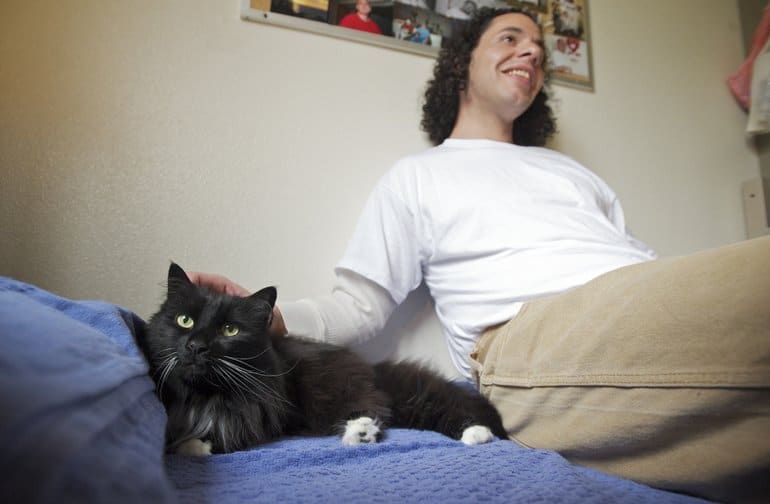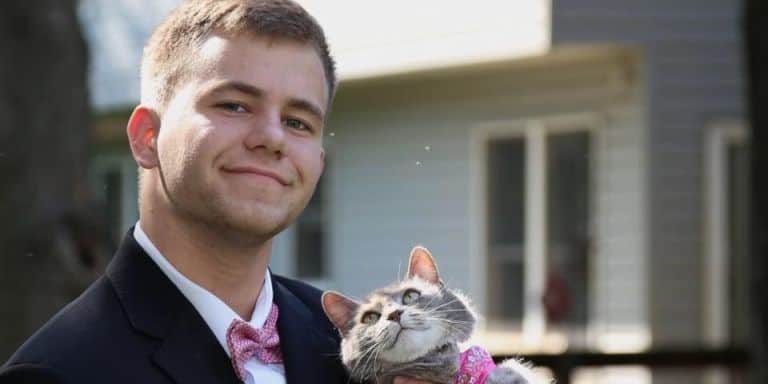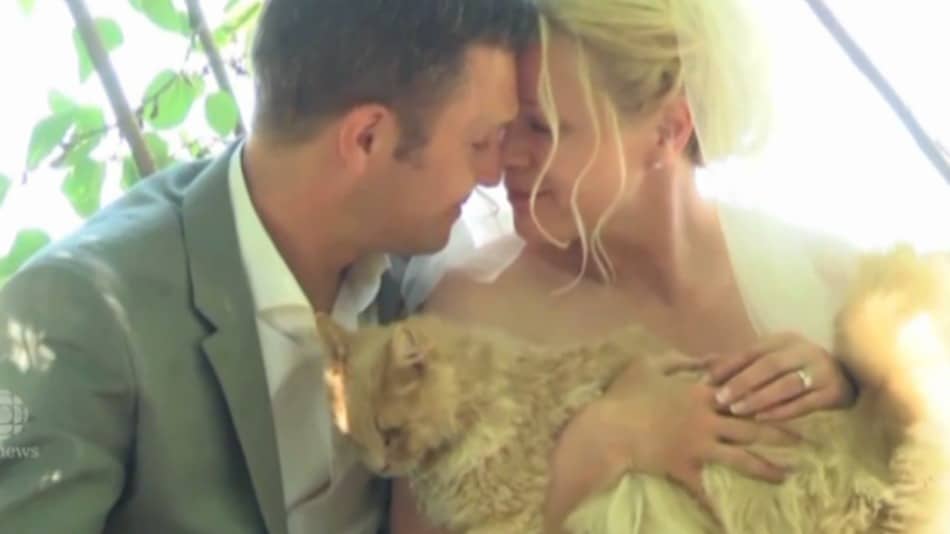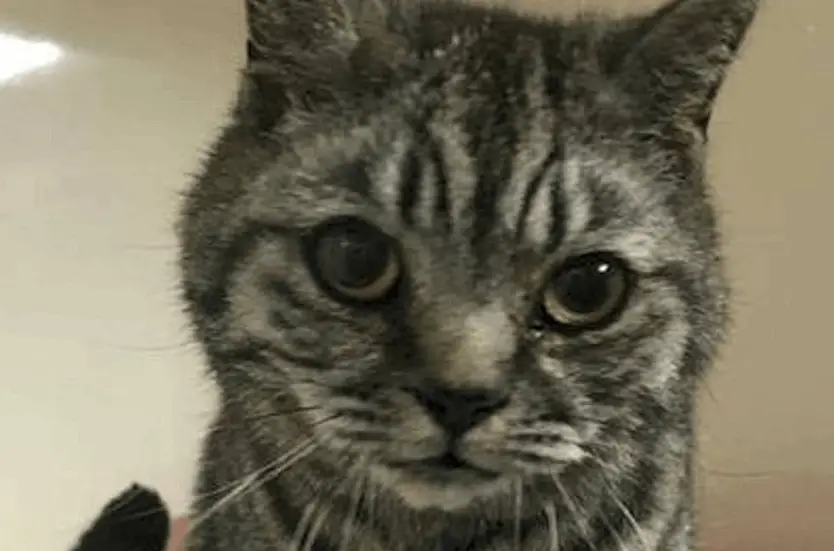by Anne Beall, Ph.D.

GG had always been a companionable cat. But as the feline witnessed its caretaker, Trevor, grow increasingly burnt out from his work as an emergency and critical care veterinarian, GG became even more affectionate. While Trevor dealt with the deep stress and anxiety of witnessing animals die in his care every day, he became detached and emotionally dulled from “compassion fatigue;” GG, in turn, followed Travor nonstop, cuddling and greeting him every day. This nonstop attention allowed Trevor to process his grief and find new joy in life and in his work.
GG obviously doesn’t fit the stereotype of the aloof cat that knocks glasses over and barely acknowledges its caretaker. But GG is far from unique: there are thousands of cats that are similarly affectionate, loving, and attuned to their caretaker. Once, while walking down Michigan Avenue in my home, Chicago, I stopped to chat with a homeless man sitting on the street with a pet cat. He told me that the cat helped him through panic attacks and other struggles with mental health.
Now, post-COVID-19, where uncertainty has added to stress and anxiety, a cat might be the perfect companion through social isolation. And we have more evidence than just anecdotes!
To help contextualize stories and observations, my firm surveyed over 1,500 Americans with cats in their lives. We asked them to tell us about their perceptions of and experiences with up to three cats; we learned how a total of 3,169 cats make or have made people feel. I write about the findings in my new book Heroic, Helpful and Caring Cats: Felines Who Make a Difference.
Here are four key ways cats make for great companions- no matter how stressed you are.
1. Cats Care — Deeply
GG clearly showed just how much cats can love and care about their caretakers. And this was clearly unconditional love- there was no pressure associated with GG’s outpouring of affection. Similarly, Tommy, an 8-year-old Tabby cat I write about, follows Christy, whom he lives with, everywhere, and sleeps next to her at night, exuding positivity and unconditional love. Caretakers largely concurred with this sentiment, in which they strongly believed the majority of their cats (65%) love them unconditionally.
2. Cats boost self-esteem and worldview
The comfort cats provide goes far beyond the soft, fuzzy physical presence- just look at GG. Their behavior is clearly trying to offer help to the people they love; among those we surveyed, over half (56%) of their cats had provided comfort to their caretakers when they needed it, and 41% of cats helped them through emotional difficulty. Cats have helped in other ways as well: helping their caretakers through an illness (19%) or helping them through death or divorce (16%). More surprisingly, we found that one-third (36%) of these felines made their caretaker feel better about themselves. But the most interesting finding from our perspective was that over half of these cats (54%) made their caretakers feel better about the world just by being in their lives.
3. Cats are Companionable

Man’s best friend has a contender: the cat. When asking survey participants about the types of relationships they have with their cats, more than three-quarters (77%) of these cat-human relationships are described as ‘very close.’ Communication appears to be a large factor in how close these relationships are. We learned that almost two-thirds (59%) of these relationships contained a great deal of communication between caretaker and cat and that most cats read the caretaker extremely well and vice versa. This finding concurs with other research that has demonstrated that cats and humans have similar attachment styles (Attachment Research). We also found that cats and humans spend a large amount of time together. Pre-pandemic data revealed that in 38% of cases, cats and caretakers were together 12 or more hours per day, and in 48% of cases they were together for three to eleven hours a day. Perhaps this amount of time and the closeness of the relationship explains why two-thirds (64%) of these cats are regarded as family members.
4. Felicitous Felines spread Happiness
The majority (72%) of these cats make their caretakers happy. A huge component of this feeling is likely due to companionship and love that cats provide, but it goes even further: caretakers appreciate their cat’s personality and regard them as very intelligent. In fact, two-thirds (65%) of these felines are described as highly intelligent compared to other animals, and one-third (34%) are perceived to be highly intelligent compared to people! A smart, affectionate, and caring family member clearly makes people feel happy and adds a lot to their lives. In times of increased isolation, stress, and anxiety, Millions of Americans have a cat in their home and know how much of a difference these creatures can make in one’s life.
Now just might be the time to join them!
**
About the author:
Anne E. Beall, PhD is the CEO and Founder of Beall Research, Inc, a consulting firm that uses data and research to discover trends and create solutions for Fortune 500 companies. Author of Heroic, Helpful & Caring Cats: Felines Who Make a Difference and 7 other books on human-animal relations, fairy tales, gender dynamics, and market research, Anne previously worked for the Boston Consulting Group (BCG). She received her MS, MPhil, and PhD from Yale University. A lover of cats, storytelling, and walking, Anne lives in Chicago.
The Catington Post is reader-supported. That means, if you make a purchase through links on our site, we may earn an affiliate commission. All images and names which are not the property of The Catington Post are the property of their respective owners.



